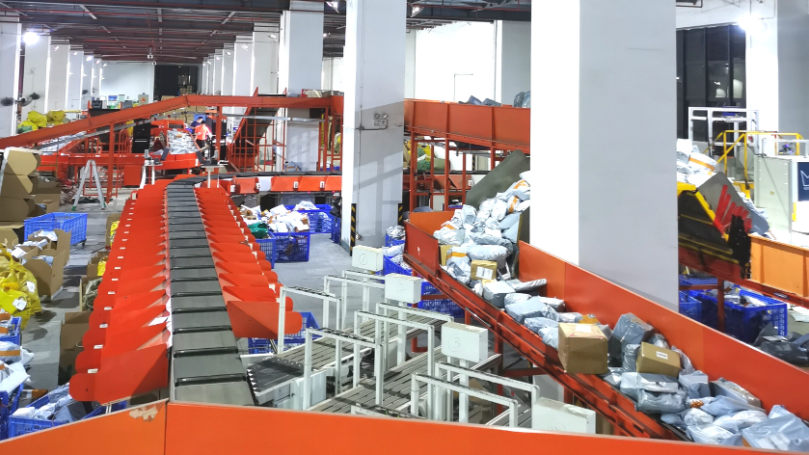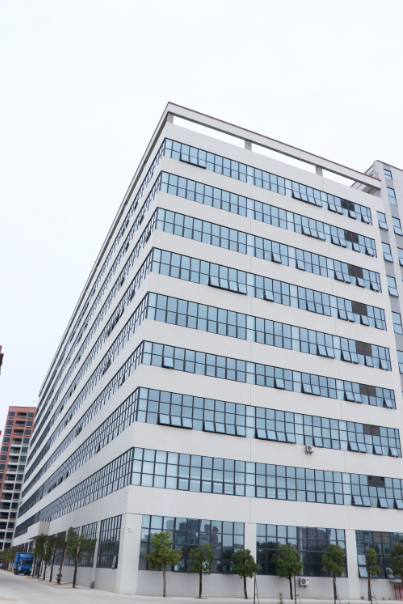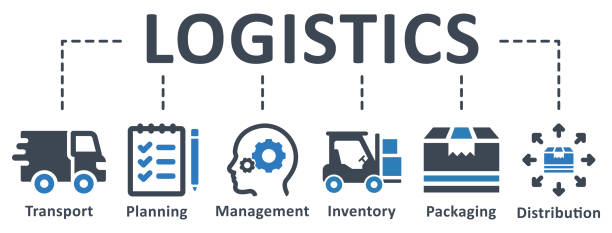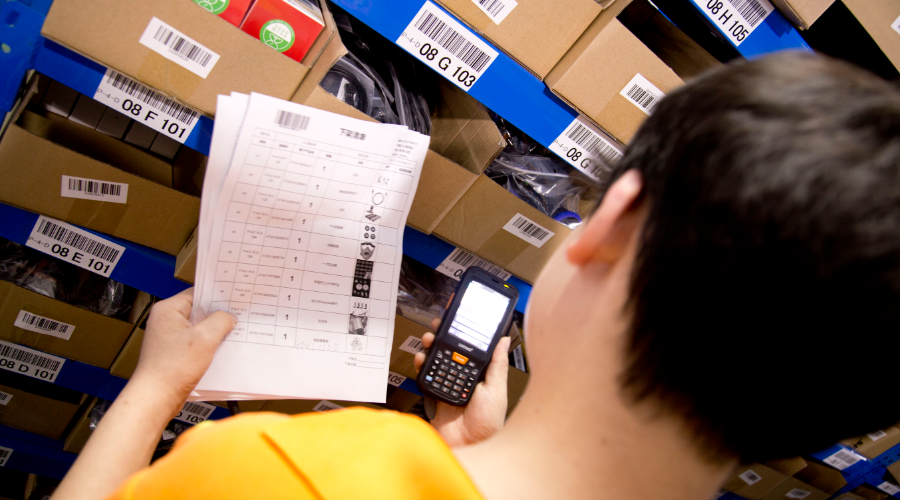Table of Contents
Choosing Between In-house and Third-party Fulfillment Centers: A Comparative Analysis
Time: Jul 11,2023 Author: SFC Source: www.sendfromchina.com
In the fast-paced world of e-commerce, efficient order fulfillment is crucial for businesses to succeed. Whether you are a small startup or an established enterprise, selecting the right fulfillment solution can significantly impact your operations and customer satisfaction. Two popular options are in-house fulfillment centers and third-party fulfillment providers. In this article, we will explore the pros and cons of each approach to help you make an informed decision.

1. Understanding In-house Fulfillment Centers
In-house fulfillment centers are operated and managed directly by the business itself. This option offers several benefits, including greater control over the fulfillment process and the ability to customize operations according to specific business needs. With an in-house fulfillment center, you can closely monitor inventory levels, order processing, and shipping times. Additionally, having your own fulfillment center allows for direct communication with warehouse staff, ensuring faster response times and greater accountability.Setting up an in-house fulfillment center requires careful planning and investment. Factors to consider include adequate space, infrastructure, equipment, and trained staff. By investing in these resources, businesses gain more control and the ability to tailor their fulfillment processes to align with their unique requirements.
2. Exploring Third-party Fulfillment Centers

Third-party fulfillment centers, on the other hand, are specialized providers that handle the entire order fulfillment process on behalf of businesses. These providers have dedicated warehouses, trained staff, and established systems to efficiently manage inventory, picking, packing, and shipping. One of the key advantages of third-party fulfillment is scalability. As your business grows, the provider can easily accommodate increased order volumes without the need for significant infrastructure investments on your end.
In addition to scalability, third-party providers offer a range of services such as inventory management, order tracking, and returns handling. This allows businesses to focus on core competencies while leveraging the expertise of fulfillment specialists. By partnering with a third-party provider, you can tap into their experience and industry knowledge, benefiting from their best practices and efficient processes.
3. Cost Considerations
Cost plays a crucial role in the decision-making process when it comes to fulfillment centers. In-house fulfillment centers require upfront investments in infrastructure, technology, staff training, and ongoing maintenance costs. These expenses can be substantial, especially for smaller businesses with limited resources. However, as the business scales, the cost per unit decreases, making in-house fulfillment more cost-effective in the long run.Third-party fulfillment centers, on the other hand, operate on a pay-as-you-go model. You pay for the services you use, which can be advantageous for startups and businesses with fluctuating order volumes. While the upfront costs are lower, it's important to consider the long-term costs, as fees may increase as your business grows. Additionally, some third-party providers may have minimum volume requirements or charge additional fees for specialized services.
4. Scalability and Flexibility

Scalability is a critical factor for businesses experiencing rapid growth or seasonal fluctuations in demand. In-house fulfillment centers offer more control over scaling operations, allowing you to adjust staffing levels, warehouse space, and equipment as needed. This flexibility can be particularly beneficial for businesses with unique requirements or specialized products.
Third-party fulfillment centers excel in scalability. They have the infrastructure and capacity to handle large order volumes without the need for significant capital investments on your end. Whether you experience sudden spikes in demand or need to expand into new markets, a third-party provider can quickly adapt to accommodate your growing needs.
5. Operational Efficiency
Operational efficiency is vital for seamless order fulfillment. In-house fulfillment centers provide businesses with direct control over every aspect of the fulfillment process, resulting in potentially faster turnaround times. By optimizing workflows and eliminating external dependencies, businesses can streamline operations and reduce fulfillment errors. However, it's important to note that achieving high operational efficiency requires ongoing monitoring, process improvements, and skilled staff.
Third-party fulfillment providers specialize in logistics and fulfillment, allowing them to optimize processes for efficiency. They have robust systems and experienced staff who are well-versed in handling large order volumes. These providers continuously invest in technology and automation to improve their operational efficiency and accuracy. By leveraging their expertise, businesses can benefit from smoother operations and reduced fulfillment costs.
6. Expertise and Specialization
In-house fulfillment requires businesses to possess knowledge in warehousing, inventory management, logistics, and shipping regulations. It also demands ongoing training and staying up-to-date with industry best practices. While having complete control over the fulfillment process can be advantageous, it also means shouldering the responsibility of building and maintaining specialized expertise.Third-party fulfillment providers are experts in their field. They possess the knowledge, infrastructure, and experience to handle various aspects of order fulfillment efficiently. By partnering with a specialized provider, businesses can tap into their expertise and focus on core competencies, such as product development and marketing. This specialization allows for improved efficiency, reduced errors, and access to industry insights and trends.
7. Technology and Infrastructure
In-house fulfillment centers require investments in technology and infrastructure to optimize operations. This includes warehouse management systems, inventory tracking software, barcode scanners, and shipping integrations. While these investments provide greater control and customization, they require ongoing maintenance and updates to keep up with evolving technology trends.Third-party fulfillment providers invest heavily in technology and infrastructure to stay competitive. They leverage advanced systems for inventory management, order processing, and real-time tracking. By partnering with a third-party provider, businesses can benefit from state-of-the-art technology without the need for significant upfront investments. These providers continuously update their systems to improve efficiency, accuracy, and customer experience.
8. Risk Management and Disaster Recovery
In-house fulfillment centers give businesses greater control over risk management and disaster recovery. They can implement security measures, disaster preparedness plans, and redundancy systems to mitigate the risk of disruptions. However, businesses need to allocate resources and expertise to ensure comprehensive risk management strategies are in place.
Third-party fulfillment providers have established risk management and disaster recovery protocols. They often operate multiple warehouses in different locations, minimizing the risk of localized disruptions. These providers have robust security measures, fire suppression systems, and backup generators to ensure continuity of operations. By partnering with a third-party provider, businesses can leverage their expertise in risk management and focus on their core business objectives.
9. Customer Experience and Satisfaction
In-house fulfillment centers offer businesses more control over the customer experience. By directly managing the fulfillment process, businesses can prioritize fast shipping, accurate order fulfillment, and personalized packaging. This level of control can result in improved customer satisfaction and loyalty. However, it's important to note that meeting customer expectations requires a high level of operational efficiency and skilled staff.Third-party fulfillment providers understand the importance of customer experience. They have streamlined processes in place to ensure prompt order fulfillment, accurate picking and packing, and efficient shipping. Additionally, their experience in handling returns and exchanges can contribute to a positive customer experience. By outsourcing fulfillment to a specialized provider, businesses can enhance customer satisfaction and focus on building strong customer relationships.
10. Conclusion
Choosing between in-house and third-party fulfillment centers is a critical decision that impacts your business's efficiency, customer satisfaction, and overall success. In-house fulfillment centers offer greater control, customization, and potentially lower long-term costs. On the other hand, third-party fulfillment providers provide scalability, expertise, and specialized knowledge. Assess your business's unique needs, consider the factors discussed in this article, and make a decision that aligns with your growth strategy and customer experience goals.11. FAQs
1. Is it more cost-effective to set up an in-house fulfillment center?
Setting up an in-house fulfillment center can be cost-effective in the long run as your business scales. However, it requires significant upfront investments in infrastructure, technology, and staff training.2. Can third-party fulfillment providers handle large order volumes during peak seasons?
Yes, third-party fulfillment providers are designed to handle large order volumes during peak seasons. They have the infrastructure, staff, and systems in place to efficiently manage increased demand.3. Do third-party fulfillment providers offer personalized packaging options?
Many third-party fulfillment providers offer personalized packaging options to enhance the customer experience. You can work with them to design custom packaging that aligns with your brand identity.4. How do I choose the right fulfillment option for my business?
To choose the right fulfillment option, consider factors such as budget, scalability needs, operational control, expertise required, technology investments, risk management, and customer experience goals. Evaluate these factors in the context of your business objectives.5. Can I switch between in-house and third-party fulfillment if needed?
Yes, businesses can switch between in-house and third-party fulfillment if their needs change over time. However, it's important to carefully evaluate the pros and cons of each option before making the switch to ensure a smooth transition. Post Views:12940
Post Views:12940
Copyright statement: The copyright of this article belongs to the original author. Please indicate the source for reprinting.
Previous Post
Crowdfunding Fulfillment: Ensuring Success for Your Backers
Next Post
Exploring China Fulfillment: A Complete Guide for Global Sellers
TAGS
Hot Research
Get a Custom China Fulfillment Solution with FREE Storage for 30 Days
 Want to know about our services, fees or receive a custom quote?
Want to know about our services, fees or receive a custom quote?
 Please fill out the form on the right and we will get back to you within a business day.
Please fill out the form on the right and we will get back to you within a business day.
 The more information you provide, the better our initial response
will be.
The more information you provide, the better our initial response
will be.






 TAGS:
TAGS: